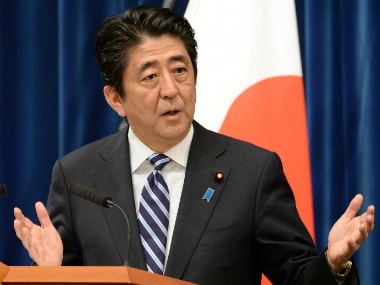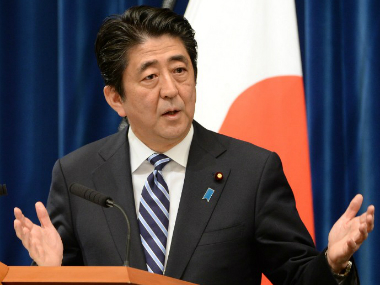Tokyo: Japanese Prime Minister Shinzo Abe earlier this year sent a note to a temple ceremony honouring hundreds of World War II-era war criminals praising their contributions to the country, a top government spokesman said on Wednesday. Abe sent the message to an annual ceremony held April 29 at the Koyasan temple in central Japan, but in his capacity as head of the ruling party, not as prime minister, Chief Cabinet Secretary Yoshihide Suga told reporters. [caption id=“attachment_1608431” align=“alignleft” width=“380”]  Japanese PM Shinzo Abe. AFP[/caption] Suga was responding to a report by a Japanese newspaper that Abe’s message, which was read out loud at the ceremony, said the war criminals had “sacrificed their souls to become the foundation of their country.” Abe also sent a similar message to last year’s memorial service, the Asahi newspaper said in its report. The revelation could worsen Japan’s ties with China, which sees honouring war criminals as a lack of remorse by Tokyo over wartime aggression. The ceremony was held in front of a stone monument that honours about 1,180 Japanese war criminals, including wartime Prime Minister Hideki Tojo and 13 other executed leaders from the era. The 14 “Class A” criminals, who are also honoured at Tokyo’s Yasukuni Shrine, were convicted of crimes against peace and humanity by the International Military Tribunal for the Far East, held in Tokyo by the allied forces after the war. Suga acknowledged that Japan has accepted the tribunal’s decisions, laid out in the San Francisco Peace Treaty, as the conditions for Japan’s return to the international community. Abe, however, has said that those convicted by the tribunal are not considered war criminals under domestic law. Ceremony organisers said on their website that those who were executed were “wrongfully convicted” by the allies and that their honour should be restored. AP
Japanese Prime Minister Shinzo Abe earlier this year sent a note to a temple ceremony honouring hundreds of World War II-era war criminals praising their contributions to the country
Advertisement
End of Article


)

)
)
)
)
)
)
)
)



